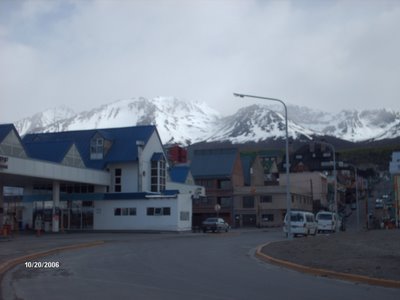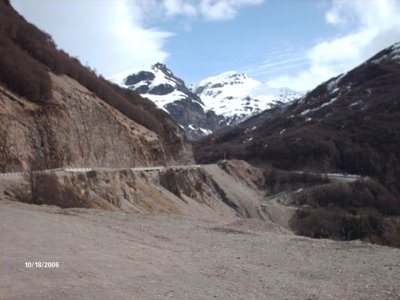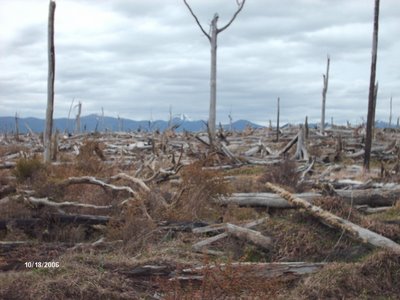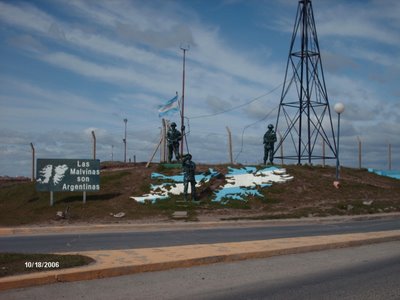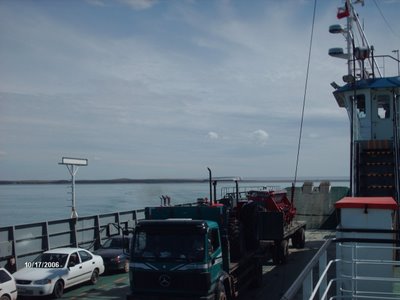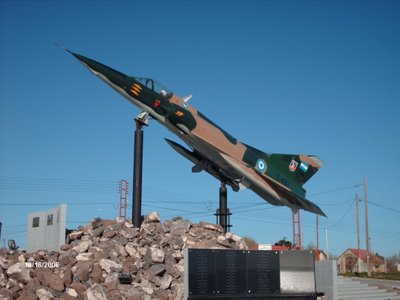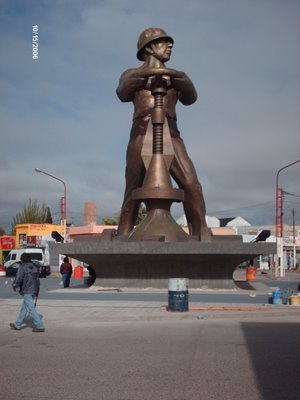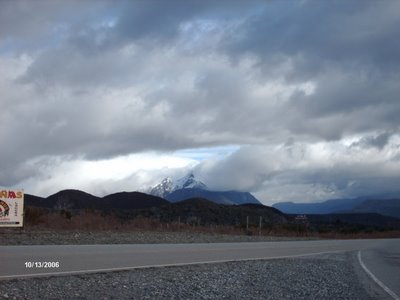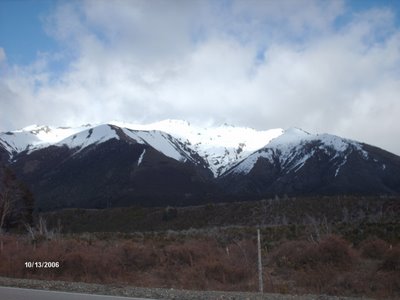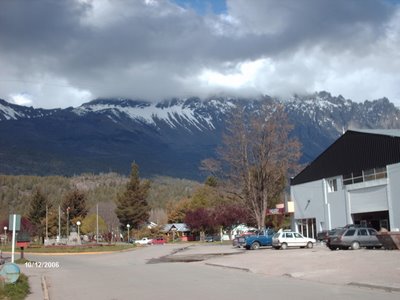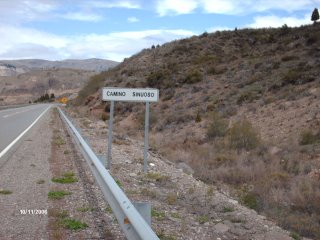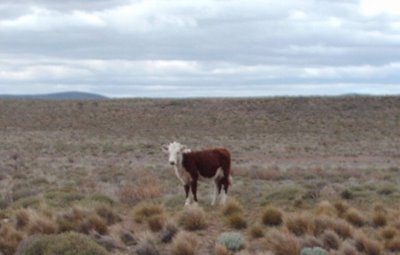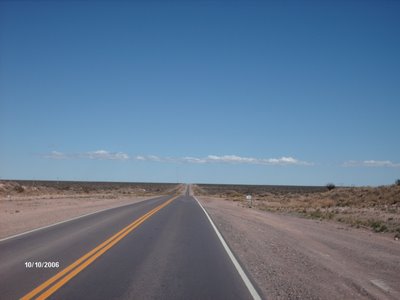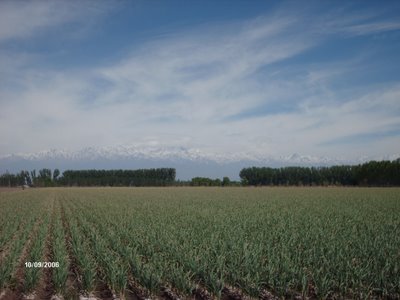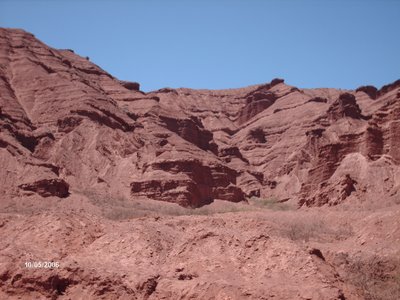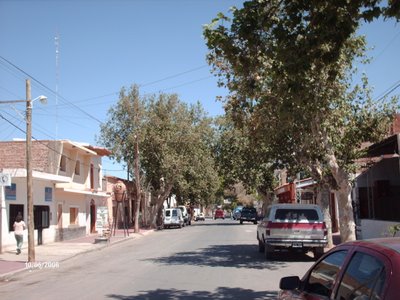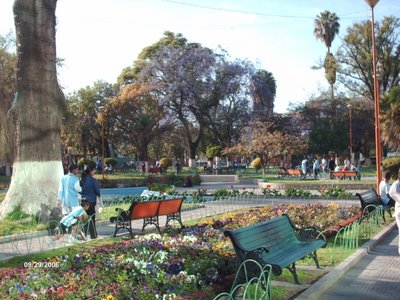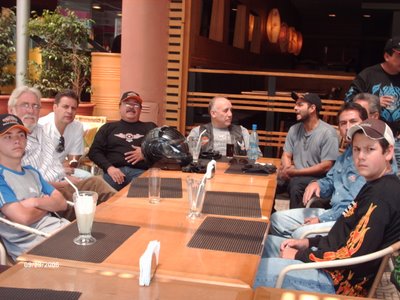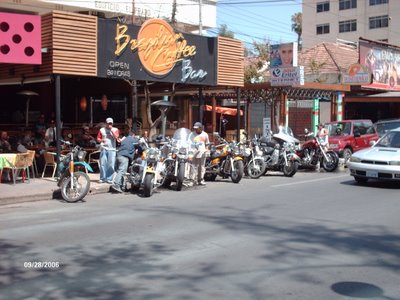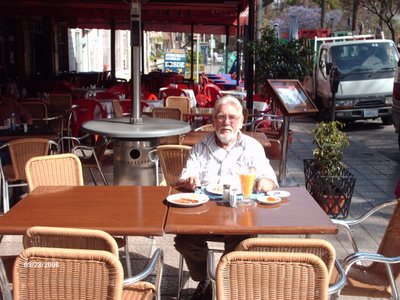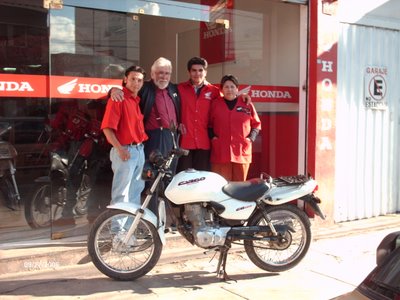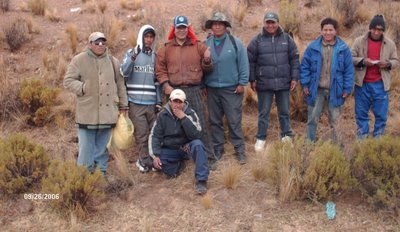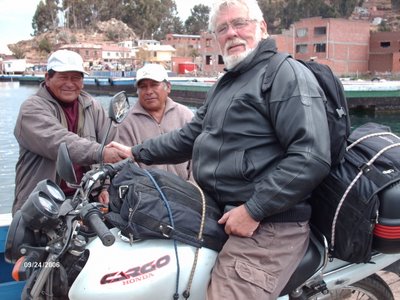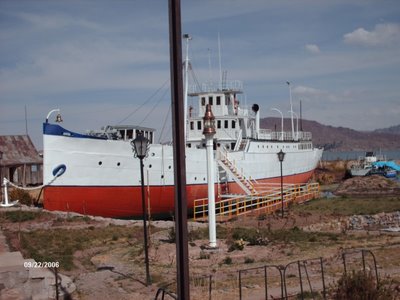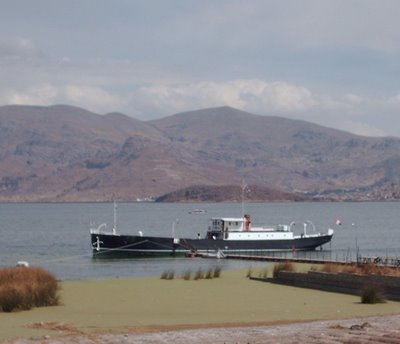THURSDAY, OCTOBER 19I face another day of wind and cold and vast distances.
I am accustomed now to the dress code for springtime in Patagonia. On the bottom half I wear underwear and long underwear, two pairs of pyjama bottoms, thick jeans and rain pants. The top gets three undershirts, cord shirt, three jerseys, leather jacket, scarf, windproof rainjacket. I pad the front of the jerseys with newspaper. Next I load the bike. One bag goes on the gas tank. I wedge a second bag into the gap between the seat and the cargo box. Maps, spare gloves and the FootPrint guidebook go in rubber webbing on the box lid. I struggle into the backpack, settle the helmet and security glasses, pull on wool gloves and leather gauntlets. Ready…
Passers-by stop to watch this large blue balloon in a crash helmet prepare to mount. I know their thoughts.
Will the old weirdo get his leg over?
Will the bike fall?
Safely seated in the saddle, I kick the starter, no throttle: Brrrmmmm…
I smile at the disbelievers, raise a disdainful paw, slip the Honda into gear and ride off into the sun. And ride – and ride – and ride…
I have seen a red lake and a green lake and blue lakes and dry lakes. I have shouted at fat married couples (birds) to get off the road. I have talked to Hereford cattle and road repair gangs.
I whirl an arm to denumb my fingers, stretch my legs, wriggle my toes. I bow to lessen wind buffeting by passing trucks, wave to gauchos, slalom the broken white line. I check my watch and the distance travelled against the distance remaining to the next gas stop. 100 Ks is the beginning of a countdown. 100 Ks is only sixty miles. 80 Ks is fifty miles. 20 Ks is nearly there.
My dismounting technique is ungainly – more a semi-fall sideways. I hobble to the lavatory and fumble deep within all the folds of clothing for something to pee with. I sip black coffee in the gas station cafeteria, munch a sandwich, chat with whoever asks where I come from. These are the moments that make the trip worthwhile: so many different people, all content to share with me a little of themselves.
I fill the tank. Backpack, helmet, glasses, gloves: Brrrrmmmm.
Ahead lies a further 150 Ks.
Is it fun?
In truth?
Fun is the wrong word.
Challenge comes closer. In my seventies, can I ride 22,000 Ks on a small bike the length of the Americas? The start of each day is hardest. I wake and lie in bed and contemplate the distance ahead. One more night in a strange bed. Broken sleep. Every part of me aches - back, knees, ankles. I want to give up. I fumble for spectacles and the lamp switch. Check the AAC route guide. Tomorrow I will be on the final page. Get up, you old fool. Take a hot shower.
